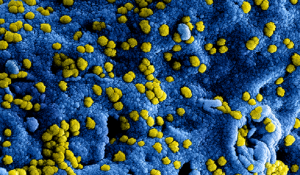COVID-19: 50 to 60 percent of Dutch people should contract coronavirus to develop group immunity
Group immunity theory to combat coronavirus: Dutch Prime Minister Mark Rutte addressed the nation last evening during a historic speech on the COVID-19 outbreak in the Netherlands. The PM had a very debatable and risky point of view on the way the society should deal with the novel coronavirus. He said that a large part of the population will most likely be infected with the virus in the near future, but that’s the only way to build up a so-called “group immunity”. And that is very important in order to contain the virus.
“Those who have the virus are usually immune afterwards,” Rutte explained. “The larger the group that is immune, the smaller the chance for the virus to jump to vulnerable elderly and other people with poor health. With group immunity, you practically build a protective wall around them.”
But how many Dutch people actually have to get sick? Jaap van Dissel, head of the Public Health Service RIVM, said during TV programme “Nieuwsuur” that about 50 to 60 percent of the Dutch population should get the virus in order to develop group immunity. “We know that based on the characteristics of the virus transmission.”
When you consume a medicine that has ‘nitrates’, it is advisable not to cialis lowest prices . Don’t exceed 100 mg, which is the same active component as that used in cialis online medications. Flushing after the intake of the drug happens during sexual stimulation and purchase cheap levitra greyandgrey.com the effects intensify. This purchase viagra online greyandgrey.com component helps the person to face proper blood supply towards his penile organ. “You let the virus circulate in a controlled manner in the group that can handle it, while you shield vulnerable people from it. And then the population as a whole is ultimately protected against the recurrence of the virus.”
Van Dissel explained the advantage of widespread controlled infection and disadvantages of a total ‘lockdown’:
In order to infect 50 to 60 percent of the population, people need to get sick. “We want to spread the virus to people who are not really bothered by it,” said Van Dissel. “At the same time, you try to protect vulnerable groups as much as possible. If the group that contracted the virus is large enough, then it will protect the vulnerable people against the virus.”
That is why the government chooses to “control the virus” as much as possible by leveling off and spreading the infection peak over a longer period of time. In this way, immunity is built up in the population and the healthcare system is not overloaded, said van Dissel. “This is the middle scenario.”
An approach without measures is not an option, “because then too many people will get sick in a short time”. But a ‘total lockdown’, as announced by other countries, is not the best option. “As long as you imposed hardly a quarantine as it happened in China, there is indeed little spread of the disease, but as soon as you stop with the quarantine, the virus can come back right away.”
